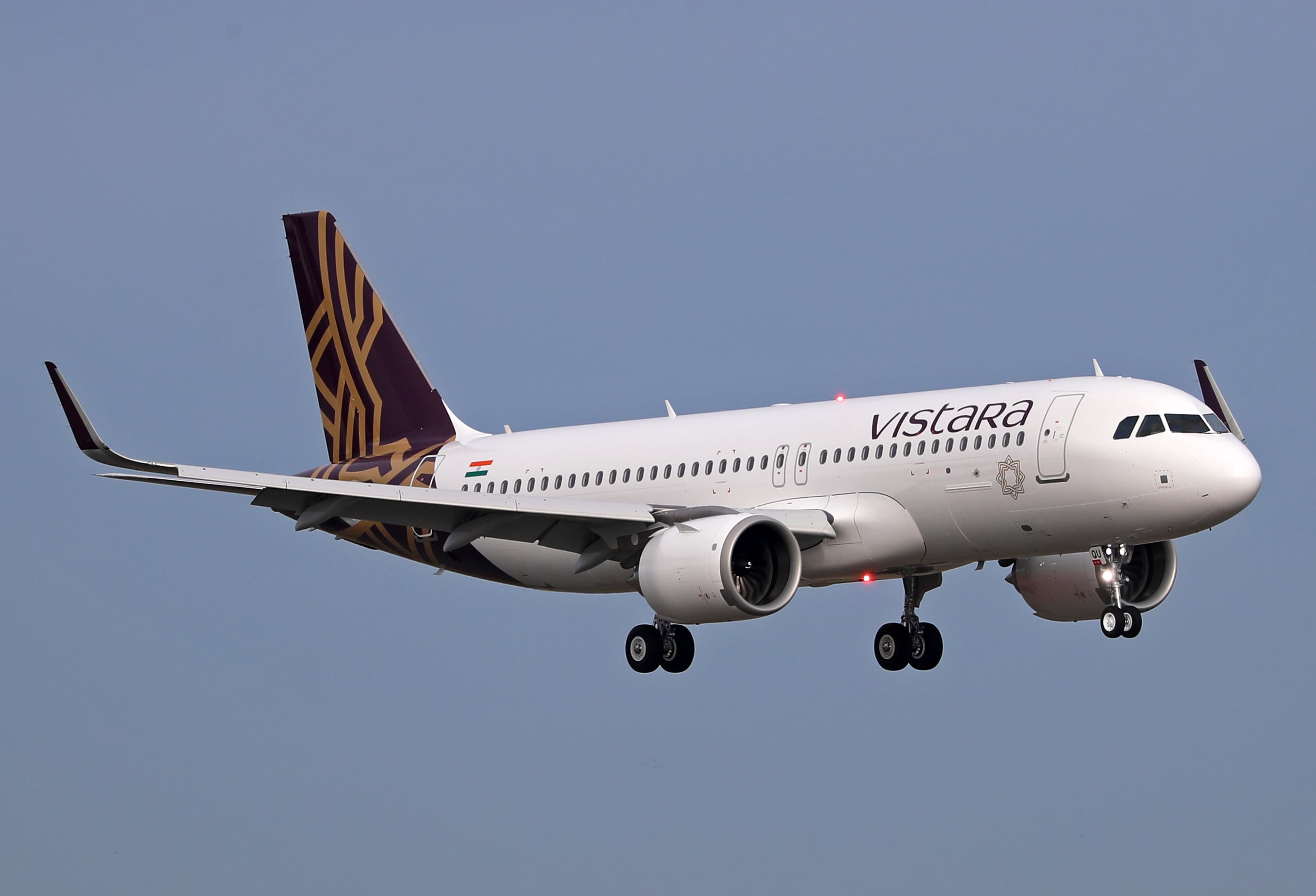
India’s Vistara airline has cut flights following cancellations and delays all week as pilots have been on a strike of sorts over salary revisions.
Pilots have called in sick to protest the terms of their new contract that will come into effect following the carrier’s upcoming merger with Air India, causing the airline to cancel 150 flights, while as many as 200 have been delayed since Sunday, according to local media reports.
Tata Group, which owns a 51% stake in Vistara — the remaining 49% is owned by Singapore Airlines — announced its merger with Air India in November 2022. Singapore Airlines will have a 21.5% stake in Air India.
In the new salary structure, pilots have been awarded a fixed pay for a minimum 40 hours of flying — earlier the minimum was 70 hours — a source who has been with Vistara for more than five years told CNBC. The source preferred to remain anonymous due to the sensitive nature of the subject.
Pilots used to “get the same amount of money” whether they flew for 10 or 70 hours earlier — even though the minimum was 70 — the source added. The new structure will cut the salary from about $7,400 (for 70 hours but not always enforced) to $5,200 for a strict 40 hours, the source said.
Vistara was not immediately available for comment when contacted by CNBC.
More than 200 pilots have not signed the new contract, another employee at the company, who also preferred to remain anonymous, told CNBC. But the first CNBC source said their salary had been reduced as per the new contract which they hadn’t signed.
Pilots were given just 15 days to sign the new contract, with Vistara’s management sending a “threatening” email on dissidents likely missing out on a one-time payout of $4,000 to $5,000, the first CNBC source said.
“We did not think this would happen. This is not something you’d hear from any other Tata company in India,” the first CNBC source added.
Poor roster planning
Vistara’s CEO on Wednesday addressed pilots and said that flight cancellations and delays were not just due to pilots reporting illness, but also from planes being grounded and pilots hitting their maximum duty hours.
He assured them that the problem would be solved in the coming days and apologized for poor schedule planning and overwork, local media said.
“Working in Vistara is nothing like what it is in Singapore Airlines. This is very sad to say since Singapore Airlines has almost 50% ownership of Vistara,” the first CNBC source said.
“The rostering practices are very, very bad. They can change your schedules on a whim,” they said. CNBC did not immediately receive a response from Vistara when asked about its scheduling processes.
Indian Commercial Pilots’ Association and Indian Pilots’ Guild said in a statement to CNBC Thursday that the concerns highlighted by Vistara pilots “are not isolated incidents but rather indicative of systemic issues that extend across various Tata Group aviation entities.”
Last month, the Directorate General of Civil Aviation slapped Air India with a $95,658 fine for violating flight duty time limitations, Reuters reported.
Aviation boom
India’s aviation sector has grown by leaps and bounds as the world’s most populous country is set to be the fourth-largest global travel spender by 2030, largely due to a growing middle-income population that will see a substantial rise in household earnings.
Indian travelers are projected to take 5 billion leisure trips by 2030, with 99% within the country, according to a report by Booking.com and McKinsey.
“It’s common to see personnel and operational changes anytime two companies decide to merge … But we don’t anticipate there will be meaningful spillover effect from the ongoing event, even though there are certainly disruptions in the short-term,” said Malcolm Dorson, head of emerging market strategy at investment firm Global X.
Airlines need to ensure they have enough pilots to keep up with high demand, he added.
— CNBC’s Naman Tandon contributed to this story.
Source: CNBC
